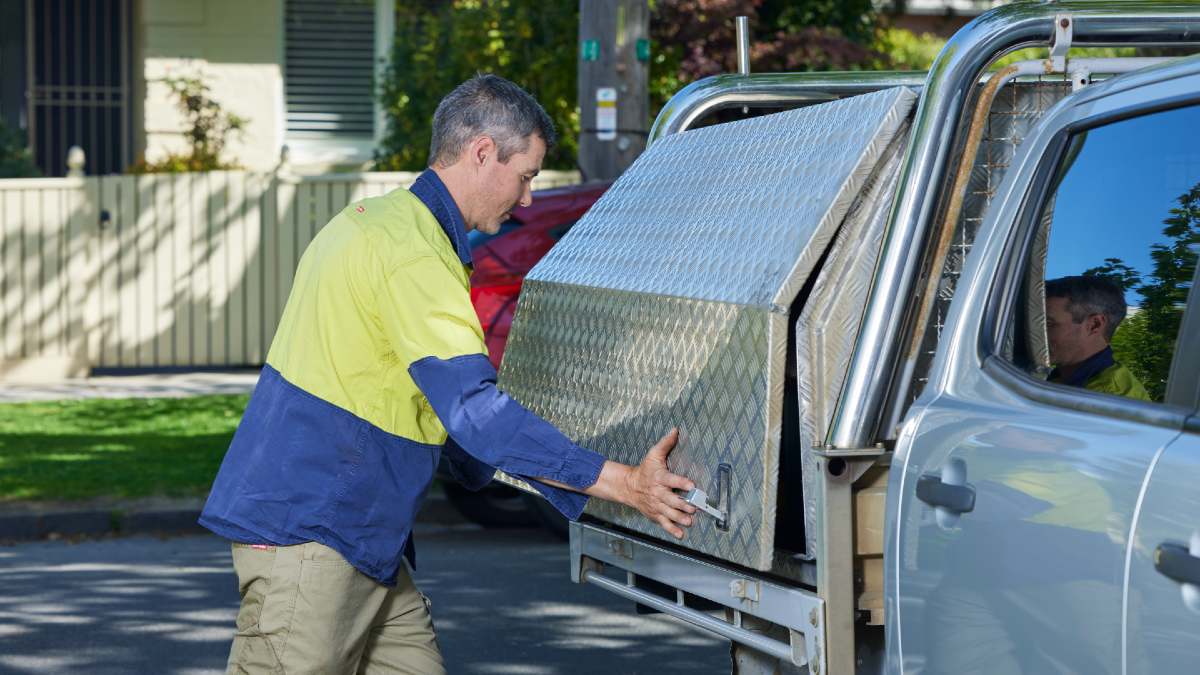Follow our tips for saving money on groceries, fuel, and energy, and find out how home and car maintenance can help you reduce future costs.
Money-saving tips for small businesses and sole traders

Running a small business is no mean feat. Here are some ways for small business owners and sole traders to trim expenses and save money.
From grants and energy efficiency to fuel savings and small business insurance, here are some money-saving tips to help you tighten the belt, so you can get on with doing what you do best – running your small business.
Your small business insurance questions answered
Create (and stick to) a budget
The foundation of financial health in any business is a clear and realistic budget. A detailed budget gives you visibility over where your money is going, helps you prioritise spending, and keeps you from overspending on non-essentials.
Start by tracking your income and expenses regularly, then categorise them into fixed costs (like rent and utilities) and variable costs (like marketing and supplies). Use accounting software to automate and manage your finances efficiently. Review your profit and loss statement for the past 12 months and rank your expenses from highest to lowest and search of cost-saving potential.
As part of your budget planning, review your monthly subscriptions (e.g. software tools, marketing platforms, cloud storage, design services) and cancel anything that isn’t delivering good value. Look for free or lower-cost alternatives with similar features.
Find small business grants
There are many small business grants and programs on offer around the country, so it’s worth checking out what’s available in your state or business category. Even small grants can make a big difference and reduce the pressure on your cash flow.
There’s a wide range of grants and funding schemes available specifically for small businesses and sole traders. These can help cover start-up costs, digital transformation, training, equipment, and more—without needing to be repaid. Start-up business grants, for example, can provide businesses with the capital to realise a business idea.
Look at what’s available in your local area. This government tool has more than 600 grants, funding and support programs listed for businesses in Australia.

There are many small business grants and programs on offer.
Use business apps and AI tools
Most small businesses use artificial intelligence (AI) without realising it. Most financial management tools use AI to help you keep your accounts in order. Cloud accounting automates complex tasks, saving money and increasing productivity.
Email-automation tools are also powered by AI, and you can customise an AI chatbot to provide 24/7 customer service for your small business. If you use Google Maps for navigation, AI is also embedded in that app.
Australia's National AI Centre (NAIC) has free resources to help your business adopt AI. There are also government-funded places for this Introduction to AI course.
As well as using apps for accounting, you can use apps for comparing prices, organising your workload, and much more. Consider which elements of running your business could be improved, and have a look around online for either a desktop or mobile solution to make things run more smoothly.
Find easy fuel savings with Arevo
Fuel prices heavily affect small businesses that transport goods, travelling tradies, and professional service providers who regularly visit their customers.
With a bit of planning and know-how, you can save by tracking down the cheapest fuel near you. Check out Arevo, which will put you in the driver’s seat when it comes to finding cheap fuel and realising fuel savings. Best of all, it’s free to download.

The Arevo app can help small businesses and sole traders save on fuel.
Improve your energy savings
If you've had the same electricity provider for years, it’s worth shopping around for a better deal. Energy providers often update their prices and products as new competition hits the market, especially from the new generation of 100 per cent carbon-neutral energy providers.
Replacing halogen lightbulbs with efficient LED lightbulbs can help reduce your power bills. While the initial purchase price is higher, these are among the most energy efficient globes on the market, helping cut annual running costs.
Smart lighting even allows you to group lights into smaller networks (so you can turn off the storeroom lights out the back while you’re serving customers, for example). Sensor lights that automatically switch off when not in use may also help you save on energy consumption.
Engage in networking and mentoring opportunities
Being part of local business associations or online communities can also offer cost-saving benefits such as shared resources, group discounts, and peer advice.
Networking in particular is a great way to build organic word-of-mouth opportunities for your business. It can also open doors to collaboration and partnerships. A simple search online, or checking out platforms such as EventBrite, can uncover a range of events that could work for you.
Mentoring others or being a mentee can also help bolster your business. You may be able to find a mentor with similar industry experience or someone you admire via LinkedIn. Be available for online catch-ups, which can help make the commitment more achievable for those busy in business.

Mentoring programs can help bolster your business.
Use free training and education resources
By learning in-house, you can reduce the need to outsource and improve your competitive edge.
It's easy to access free learning opportunities thanks to educational opportunities like the free courses on Hubspot Academy, Coursera, LinkedIn or edX. The Victorian Government also offers a wealth of guidance, tools and templates on their Business Victoria website to help Victorias successfully start, run and upskill their business.
At a pinch, you can also watch YouTube tutorials and industry webinars and podcasts.
Go digital and paperless
Businesses can generate a lot of paperwork, and creating, storing and disseminating that paperwork can cost a lot of money. Taking steps to cut the amount of paper from your business can help strip costs out of your business.
In many areas of your business, it’s now possible to get rid of paper entirely. Digital documents are simpler to store, more portable than paper, and easier to search and also easier to send.
Use cloud storage platforms such as Google Drive or Dropbox to manage files. Digital invoicing and contracts are often accessible through accounting software you may already be using. E-signature tools like DocuSign eliminate the need for printing and scanning paperwork.

Cutting down on the amount of paper used in your business can help cut costs.
Update your small business insurance
Sometimes, things don’t go smoothly for small business owners. Some of the unexpected setbacks could include having a few tools stolen if you’re a tradie, a bingle in the work ute on the way to a job, having your work mobile phone stolen, or even a broken coffee machine at your cafe or restaurant. Building materials are in-demand with opportunistic thieves, too.
When things go wrong in business, it can be expensive. Mitigating these risks by making sure you’ve got the right small business insurance policy in place is very important. RACV Business Insurance provides cover for different industries to help protect businesses from financial loss, with insurance available for tradies, professionals and consultants, retailers, restaurants and cafes, IT professionals and domestic service professionals, such as cleaners.
Buy refurbished and sell old equipment
Whether it’s laptops, office furniture, or even vehicles, used and refurbished equipment can be significantly cheaper and still in great condition. Leasing is also an option that spreads costs over time and avoids large upfront expenses.
Second-hand equipment has value in the market, so make sure you sell what you can as you make upgrades in your business to put back into your budget. Even a small sum on each item can add up over time. Check out online marketplaces to assess the value of the item, and then take some good quality photos for your listing. Of course, if it’s office computers or mobile phones you’re selling, be sure to have your data wiped to avoid a data breach.
The information provided is general advice only. Before making any decisions please consider your own circumstances and the Product Disclosure Statement and Target Market Determinations. For copies, visit racv.com.au. As a referrer, RACV Insurance Services Pty Ltd AFS Licence No. 230039 receives commission for each policy sold or renewed. Product(s) issued by Insurance Australia Ltd, ABN 11 000 016 722, AFS Licence No. 227681.


